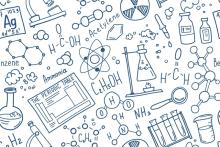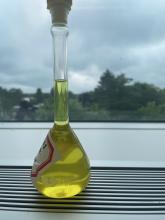Synthesis and Characterization of Fluorescent Carbon Dots for Sensitive Detection of Cardiac Troponin Using Molecularly Imprinted Polymers
This study developed fluorescent carbon dot (CD)-based molecularly imprinted polymer (MIP) sensors for cardiac troponin I (cTnI) detection. Two nanomaterials, carbon nitride dots (CNDs) and gamma-carbon dots (γ-CDs), were synthesized and characterized using MicroRaman spectroscopy, FTIR, UV-Vis, and fluorescence spectroscopy to assess their structural properties. The CDs were integrated with MIPs to create selective biosensors, leveraging their fluorescence for biomarker recognition.



